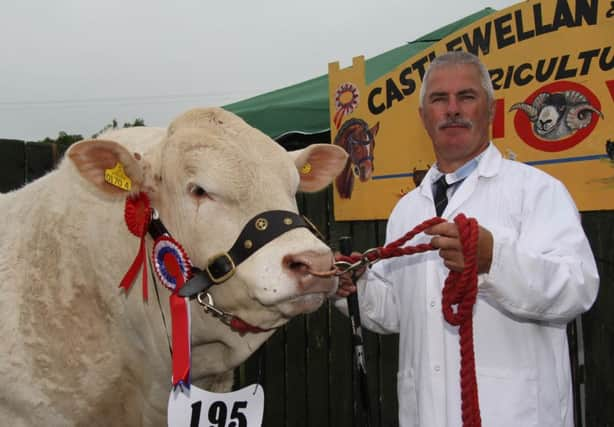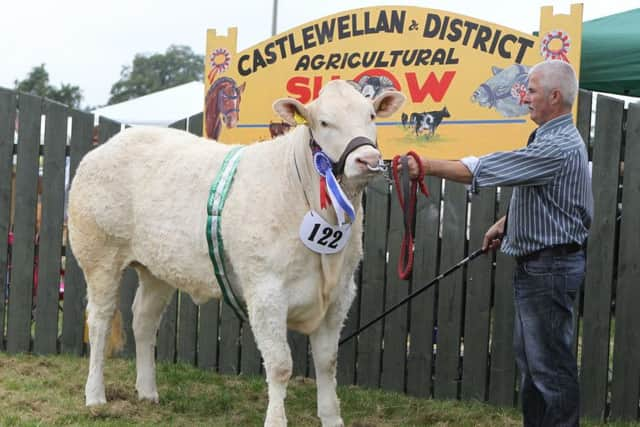Blonde breeders at loggerheads with DARD over TB compensation


Sean Savage claims the sums on offer fall far short of the value of the cattle, the result of over 20 years of breeding, and he has queried the legality of a TB test which saw five of his cattle identified as TB reactors. The Ballynahinch farmer has posed questions around a second test on the herd, which he says was conducted at 42 days, before the stipulated 60 day period.
Five of the most recent cattle affected include two pedigree heifers, one in calf to the stock bull, two young show bulls and one cow which has a calf.
Advertisement
Hide AdAdvertisement
Hide Ad“One of the bulls would have been going across the water and would have made between £6,000 and £11,000 and he was only valued at £1,800,” said Sean, who said the ongoing stalemate is causing considerable stress to the family. The Savage’s are refusing to accept the valuations and have been told their cattle could be seized.


“I want these cattle retested, because they deserve to get a second chance. One of them was due to go to Balmoral next week and our whole show season has been thrown up in the air.”
He said the family have been inundated with calls of support from other breeders after their case was highlighted in the press.
A DARD spokesperson said they could not comment on a specific case.
Advertisement
Hide AdAdvertisement
Hide AdHe added: “The eradication of Bovine TB is a key priority for DARD because it is a serious animal health issue. TB is costly for the taxpayer, the industry and the farmer, placing great financial and emotional stress on the families whose farms are affected. An infectious disease of cattle, TB can also affect humans. The risk in the north is low due to DARD’s rigorous routine testing and the slaughter of infected cattle.


“DARD’s EU-approved eradication programme is vital for the industry as it safeguards our billion pound export-dependent livestock and livestock products industry. It also reduces the risk of disease in humans and clinical disease in cattle. As a result over 90% of our herds are free to engage in international trade at any time.
“We test for TB using the tuberculin test which is used throughout the world and is required by the EU. It has proved to be a reliable tool for this purpose Animals that test positive must be isolated from the rest of the herd until they are slaughtered. This will reduce the risk of them spreading bovine TB on farms. DARD compensates herdkeepers when animals are compulsorily removed under the Tuberculosis Control Order (as amended) or the Brucellosis Control Order 2004 (as amended). The market value of an animal is defined in both the Tuberculosis and Brucellosis Control Orders as meaning the price which might reasonably have been obtained for it at the time of valuation from a purchaser in the market if it had been free from disease.
“When animals are to be valued DARD Livestock Valuation Officers follow a standard procedure. They visit the farm, inspect the animals to be valued and consider all verbal and written evidence provided by the keeper. A written determination of the current market value is then offered, which the keeper is invited to either accept or decline. The market value offered is the valuer’s opinion of current market value based on all the evidence available. It is not arrived at by a process of negotiation. All animals removed for TB (i.e. both infected and in-contact animals) are compensated for at 100% of market value. Farmers can appeal the valuation however, slaughter will proceed irrespective of whether an appeal is being made.
Advertisement
Hide AdAdvertisement
Hide Ad“Animals intended for slaughter as reactors cannot be retested. European legislation requires an animal considered a reactor to be removed from the farm and slaughtered. Domestic legislation requires reactors to be slaughtered in accordance with a notice issued by the Department.
“In 2015, 99.87% of farmers accepted DARD’s on-farm valuation.”